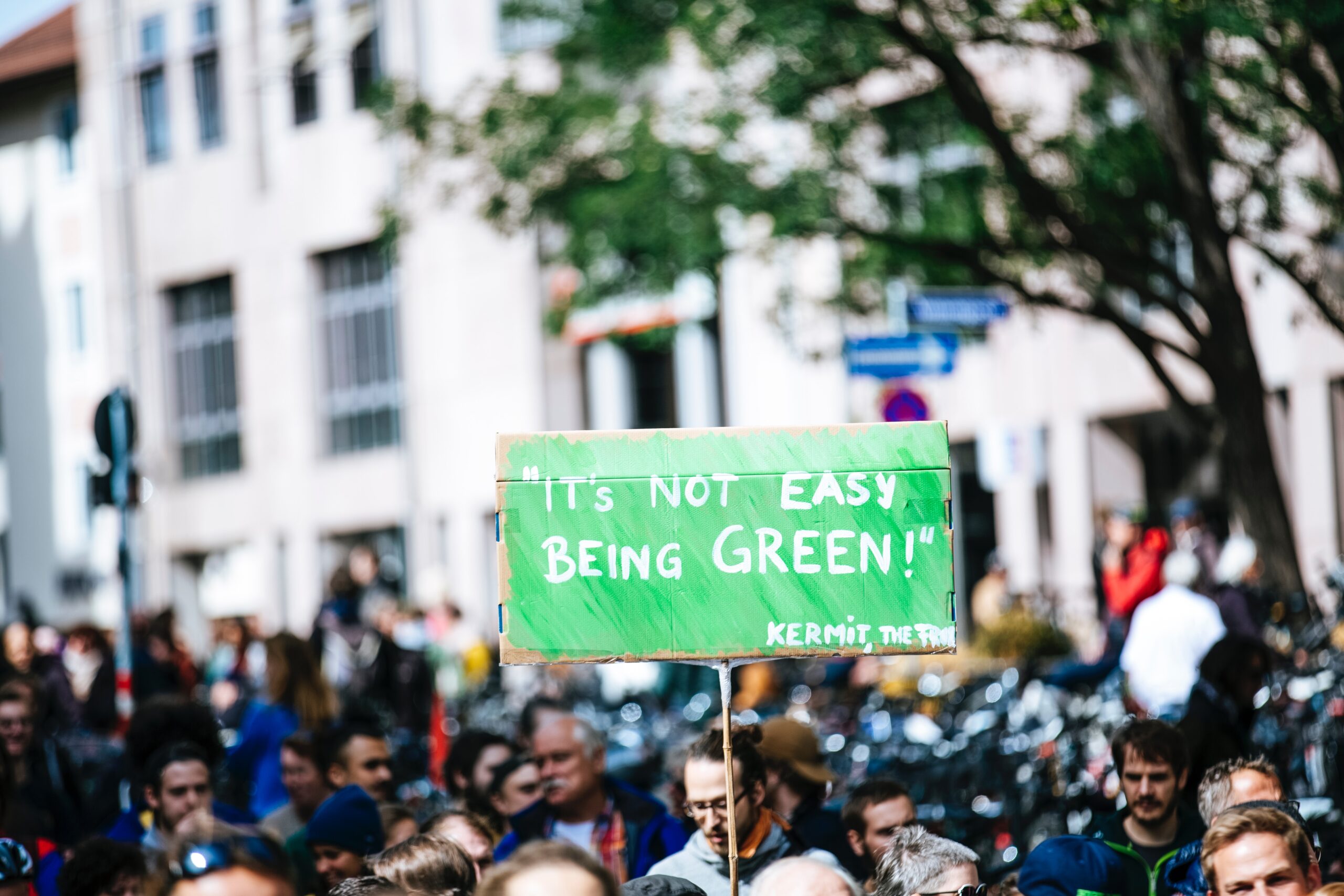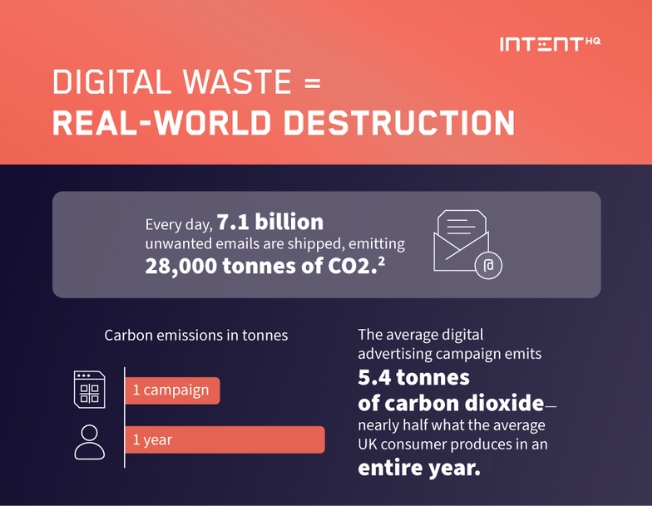
Talk – Using Causal AI to Transform Customer Marketing
Join Intent HQ and Databricks at Big Data Ldn 2023. Learn how Intent HQ uses Causal AI to understand what motivates customers to engage positively with a subscription model business.

Mass marketing doesn’t work for consumers, the environment, or your company’s ROI. The most astute marketers are recognizing that mass marketing strategies are largely ineffective, clogging up inboxes, mailboxes, and landfills all while leaving companies in the dark about what their audiences truly want. At least 7.1 billion unwanted emails are shipped daily, and the 100 billion pieces of junk mail delivered each year adds 1 billion pounds of waste to landfills, uses between 80 million to 100 million trees, and generates 51 million metric tons of greenhouse gasses. So, how does the marketing industry do better? What other marketing strategies should we be investing in that prioritize both the customer experience and the environment?

Our webinar, “Mass Marketing is Broken: How Sustainable Strategies Are Fixing This,” tackled those very questions. Moderated by Graham Phillips, Intent HQ’s CXMO, the webinar included expert panelists who are spearheading new, innovative and sustainable marketing solutions in their work.
At its heart, marketing is about reaching and engaging with people—and our solutions to the problem of mass marketing need to be human-centric as well. Overloading consumers with vague, noisy and irrelevant advertising campaigns is about as impersonal as it can get. But by listening to, collaborating and co-creating with the communities we seek to reach, we can mark a new era of tailored, and more importantly, relevant marketing that has a positive impact on the consumer experience, the environment and marketing ROI.
Before we share key takeaways from the conversation, we’d like to thank all of our panelists for their insight and expertise:
The key first step to more sustainable marketing is to define what sustainability means to you and your company. On the surface, sustainability is important to (almost) everyone. It’s safe to say that most people want a clean and safe planet for themselves and for future generations, and most brands have implemented some kind of sustainability framework for their work. The issue is that there isn’t just one issue—protecting the environment is an enormous undertaking that requires small- and large-scale action from countless stakeholders all over the world. By defining your company’s role and the elements of your work that can be more sustainable, you can find clarity and direction on the path forward.
Another key step is building a culture of sustainability internally and externally in your company. One of the strongest elements of marketing is storytelling, and it’s crucial that everyone involved in your brand—from executives to customers to partners—understands and feels inspired by your company’s work for a more sustainable future. Customers are more than willing to put their money where their values are; a 2020 McKinsey US consumer sentiment survey found that over 60% of respondents would pay more for a product with sustainable packaging. Marketing communication is a superb avenue for sharing honest, authentic and transparent information with your consumer base about your sustainability efforts.
The world is oversaturated with marketing. The average person is exposed to hundreds of ads every day, and according to Marketing Week, only 9% of digital ads are viewed for more than a second. We know that marketing campaigns—both digital and traditional—have a serious impact on our planet. We also know that most mass marketing campaigns fail to reach their intended audience in ways that count and only add to the overwhelming marketing landscape many consumers are desperate to escape. That’s why marketers need to transform the customer experience by creating marketing campaigns that prioritize relevant messaging and are tailored to those they are trying to reach.
By preventing mass irrelevancy in the form of spam emails and junk mail, marketers can truly engage their audiences with the information they want, spark genuine connections and ultimately, build long-lasting relationships with their customers.
Data is the lifeblood of the marketing industry. Yet, many companies are basing their marketing strategies on shoddy, outdated, or duplicated data sets; SiriusDecisions found that up to 25% of the average company’s data is bad. Cleaning and maintaining the data you use not only saves you time and money, it also enables you to actually reach your customers. There are environmental benefits as well—data centers use enormous amounts of energy and by tactically implementing data minimization processes to minimize your server usage, you help prevent unnecessary energy waste.
New technologies like artificial intelligence are catalyzing revolutionary change across dozens of industries, including the marketing world. Investing in green tech that allows you to better connect with your customers and protects the planet is a win-win. While there may be some hesitancy around the effort and cost of implementation, the long-term benefits significantly outweigh those concerns. The Sustainable Economy Intelligence (SEI) Database found that companies that invest in green growth see triple the returns compared to companies that don’t; companies in the top 20% of the SEI grew by a whopping 146% in the last three years. Sustainable technology enhances the customer experience, helps protect the planet and it’s also remarkably good for your company’s bottom line too.
Climate change is a human issue, which is why we need to integrate the human factor into sustainability work by doing what marketers do best: telling genuine stories that inform, inspire and ignite action. Sustainability is a multi-pronged problem and no single solution can solve the climate crisis. We all have our part to play in protecting the environment and by investing in sustainable marketing strategies, marketers can help protect the environment, strengthen the customer experience and build financial prosperity—not just for their company, but for their community at large.
Sustainable marketing is the more responsible and fruitful path forward for the marketing industry. At IntentHQ, we help companies generate relevant and specific insights into what their audiences want and how they behave now and in the future. By partnering with an analytics platform company like us, you can create marketing campaigns that are based on real insights from your audience, not speculations from vague third-party data. More precise insights mean more tailored marketing and less marketing waste. Learn more about our platform and how we can help your company here.
Thank you again to our panelists, and be sure to watch the full webinar here.
Header Image by Markus Spiske on Unsplash